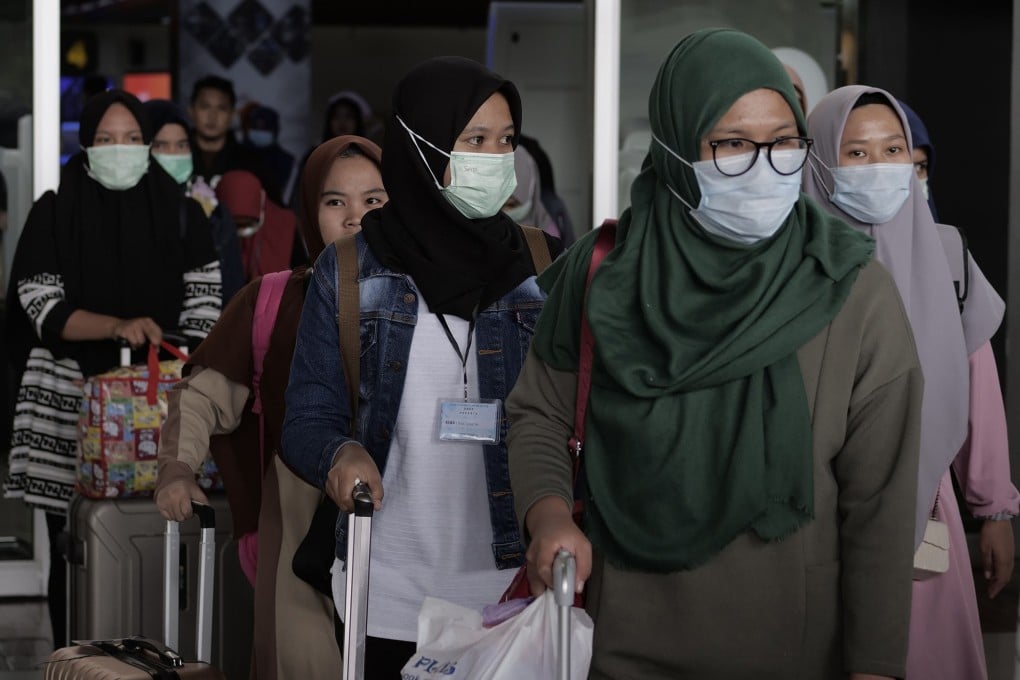Advertisement
Coronavirus: Indonesia has 0 infections so far, and it’s making people fearful
- Scarred by the memory of the badly-handled H5N1 bird flu, many have been wary of the government’s insistence no one has yet tested positive for the coronavirus
- Nevertheless, officials are preparing for the worst, and businesses are bracing for the inevitable impact on the economy
Reading Time:4 minutes
Why you can trust SCMP

Indonesia has earned a dubious distinction over its Southeast Asian neighbours in recent weeks: its government insists there has not been a single confirmed case of the new coronavirus, despite multiple cases in Singapore, Malaysia, Thailand and the Philippines, among other regional nations.
But as the number of new quarantines continued to shoot up across Indonesia in recent days – including 68 Indonesians who have been told to stay at home for 14 days after returning to North Sumatra Province from China and 30 Chinese workers who returned to North Sulawesi Province after celebrating the Lunar New Year back home – there is a fear that confirmed cases will appear in force, if they haven’t already and have just been going unreported.
These fears have been fuelled by Indonesia’s poor performance in dealing with the H5N1 bird flu virus more than a decade ago, which killed 165 out of 197 infected Indonesians between 2005 and 2014 – an 84 per cent death rate. The complaints included not identifying and reporting outbreak clusters swiftly, or properly monitoring and culling populations of commercial fowl.
Advertisement
On Monday, the Ministry of Health – already under pressure from questions about undetected or unreported coronavirus cases and claims online that people had already died – dismissed a Harvard University study which concluded that Indonesia should already have confirmed infections.

“Basically, the study is only a mathematical model to predict the spread of the virus with independent variables based on the volume of international travellers,” Siswanto, head of the ministry’s research and development department, told journalists on Monday.
Advertisement
Advertisement
Select Voice
Choose your listening speed
Get through articles 2x faster
1.25x
250 WPM
Slow
Average
Fast
1.25x